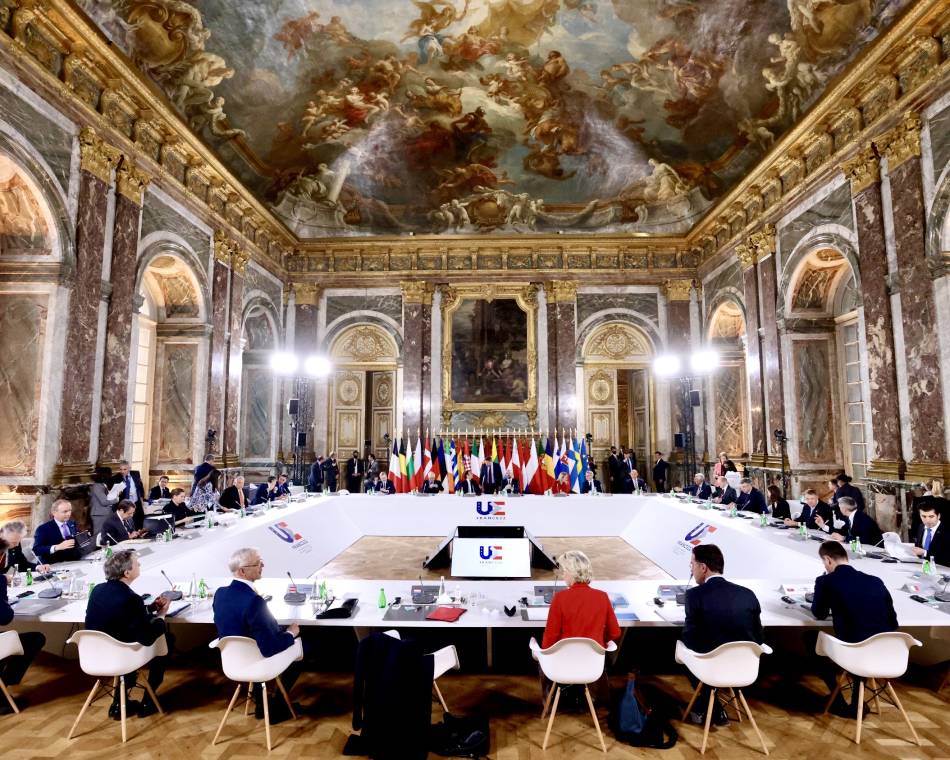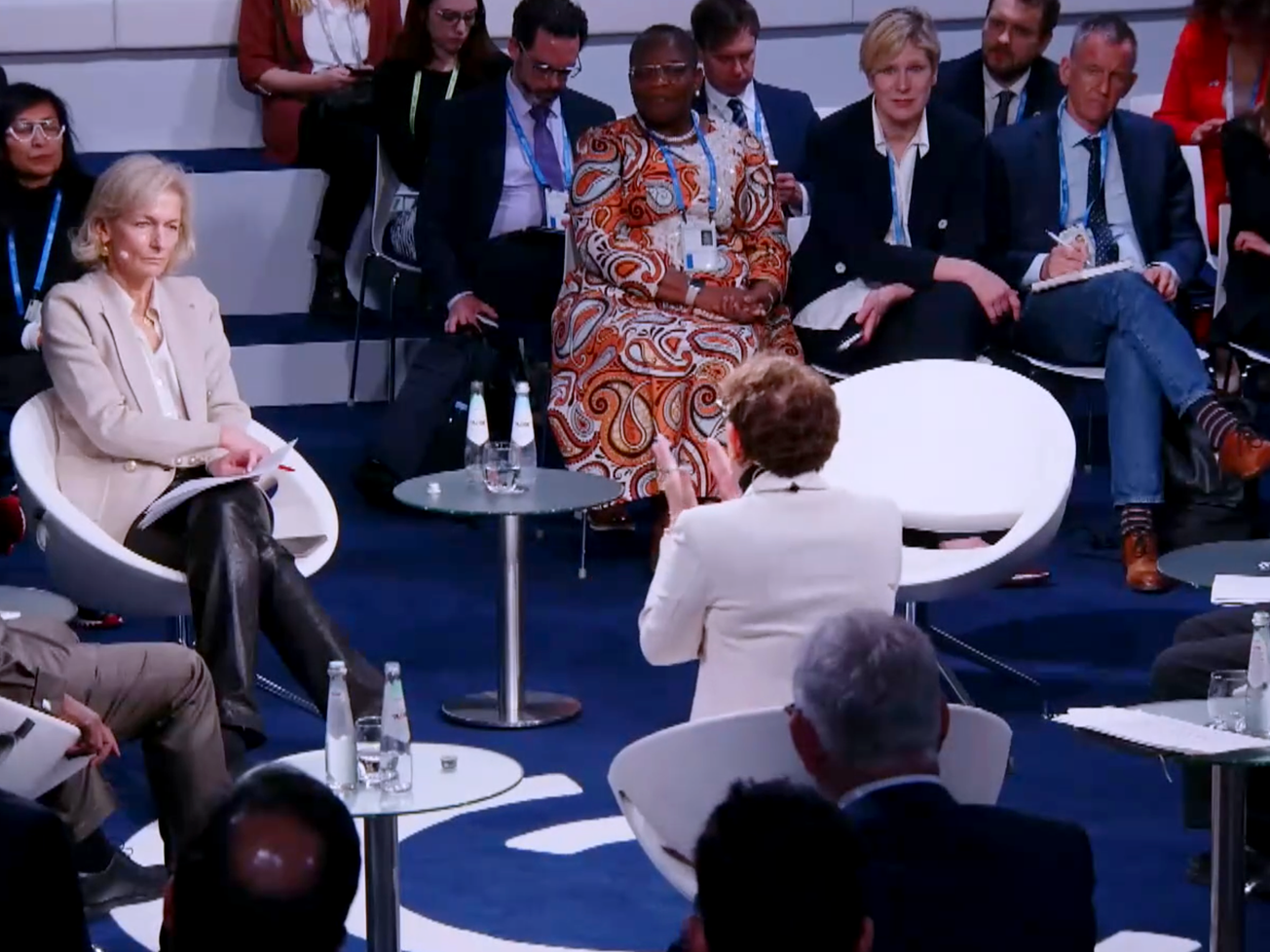PARIS (AN) — More than a century after the 1919 Versailles treaty settled the post-World War I order, European Union leaders met for talks in the sumptuous Palace of Versailles focused on ending another European war that threatens to upend the continent.
Leaders originally called the two-day summit in Versailles, on the outskirts of Paris, for a discussion about the 27-nation bloc's economic model. Instead, Russia's full-scale invasion of Ukraine, launched exactly two weeks earlier, inevitably dominated their talks which ended Friday.
"Two weeks ago Russia brought war back to Europe," they said in a 10-page joint declaration at the end of the summit. "Russia’s war of aggression constitutes a tectonic shift in European history. At our meeting in Versailles, we discussed how the E.U. can live up to its responsibilities in this new reality, protecting our citizens, values, democracies, and our European model."
E.U. leaders were united in their support for Ukraine, fighting for survival against Russian President Vladimir Putin's apparent ambition to rebuild a Soviet Union-era power and empire.
"Russia’s unprovoked and unjustified military aggression against Ukraine grossly violates international law and the principles of the U.N. Charter and undermines European and global security and stability," they said. "We demand that Russia ceases its military action and withdraws all forces and military equipment from the entire territory of Ukraine immediately and unconditionally, and fully respects Ukraine’s territorial integrity, sovereignty and independence within its internationally recognized borders."
They said the E.U. bloc will “offer temporary protection to all war refugees from Ukraine” for up to three years, enabling them to live and work in any of the 27 nations and apply for school and social benefits.
"We commend European countries, notably at the borders with Ukraine, for showing immense solidarity in hosting Ukrainian war refugees," the declaration says. "The E.U. and its member states will continue to show solidarity and provide humanitarian, medical and financial support to all refugees and the countries hosting them."
Arrived to #EUCO in Versailles 🇫🇷, expecting to
— Kaja Kallas (@kajakallas) March 10, 2022
🔹agree on 🇺🇦clear European 🇪🇺 perspective,
🔹 discuss additional ways to help 🇺🇦 and isolate Kremlin
🔹phasing out our dependency on Russia's energy and how to boost our economy
🔹discuss how to bolster EU’s defence capabilities pic.twitter.com/n2DfJOBYpX
One big 'European family'
Four days after his nation was invaded by Russia, Ukrainian President Volodymyr Zelenskyy applied for immediate admission under a "new special procedure." E.U. leaders declined to offer Ukraine fast-track E.U. membership. "There is no such thing as a fast track," Dutch Prime Minister Mark Rutte said.
The joint declaration, however, calls on the European Council, E.U.'s policy arm, and European Commission, its executive branch, to speed up the wheels of bureaucracy as much as possible.
"The council has acted swiftly and invited the commission to submit its opinion on this application in accordance with the relevant provisions of the treaties. Pending this and without delay, we will further strengthen our bonds and deepen our partnership to support Ukraine in pursuing its European path. Ukraine belongs to our European family," they said.
The leaders said E.U. member nations will enforce economic sanctions on Russia because of the invasion and add more if necessary to pressure both Russia and Belarus, which is helping Russia. "We are determined to increase even further our pressure on Russia and Belarus," they said. "We have adopted significant sanctions and remain ready to move quickly with further sanctions."
A century ago, a treaty signing on the outskirts of Paris helped end World War I. The armistice negotiated by military authorities made possible the Paris Peace Conference at the Quai d'Orsay that began in January 1919 under French Prime Minister Georges Clemenceau’s leadership.
British Prime Minister David Lloyd George, U.S. President Woodrow Wilson and Italian Prime Minister Vittorio Emanuele Orlando made up the rest of the "Big Four" at the conference, which led to the Treaty of Versailles and League of Nations at Geneva, both effective in January 1920.
But it took another global war before nations, in the post-World War II era, increasingly pursued interests through international organizations, security pacts, trading and political treaties.







